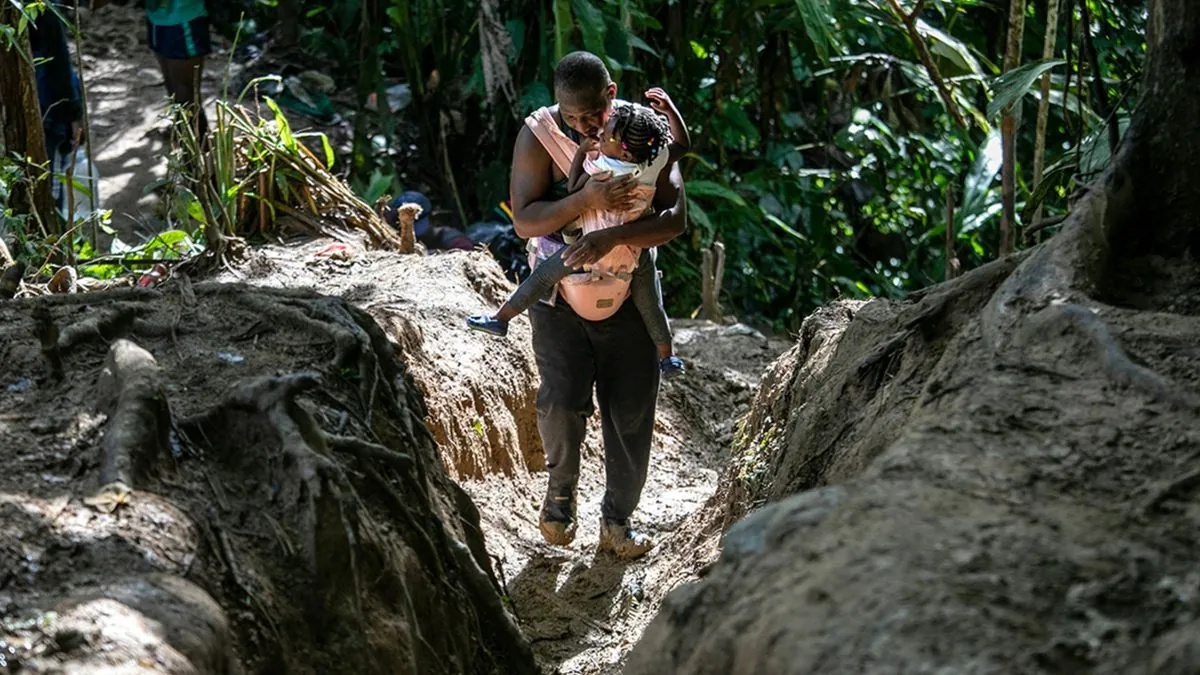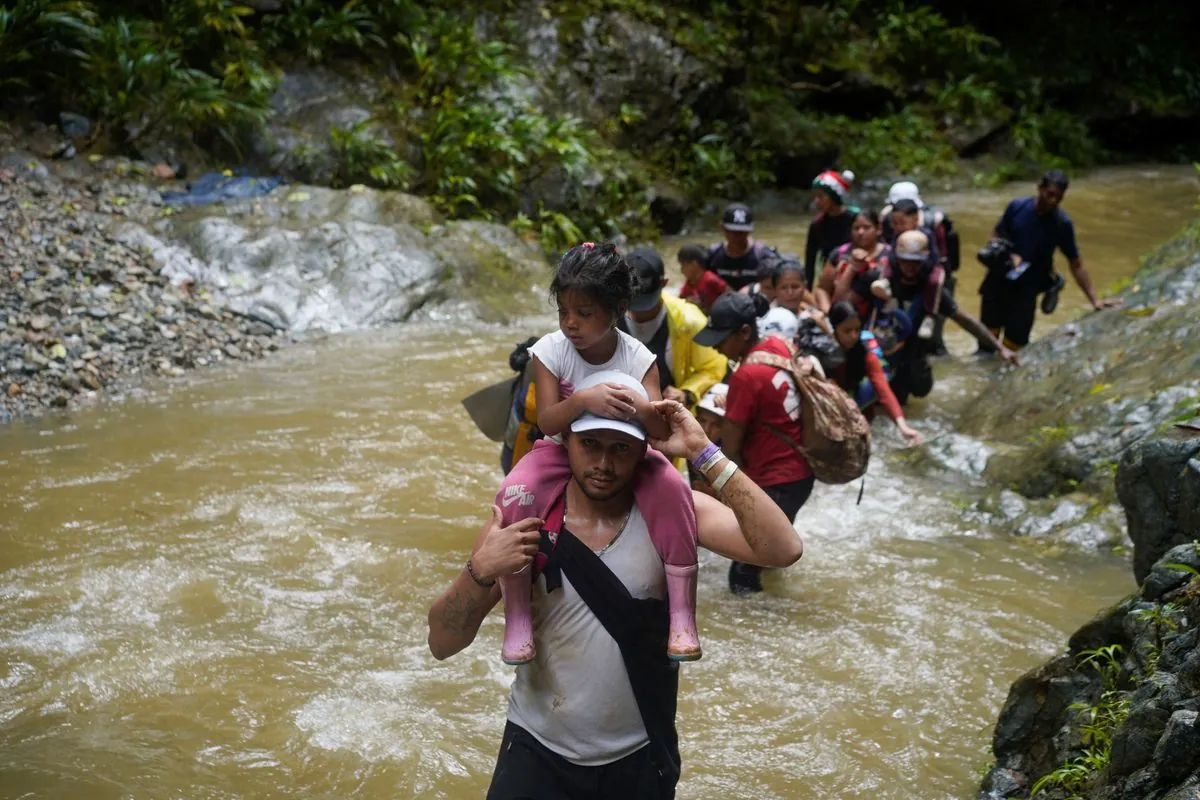Human Rights Watch Urges Latin America to Improve Migrant Protection
Human Rights Watch calls for better protection of Haitian and Venezuelan migrants in Latin America. Limited integration policies are forcing vulnerable people to seek asylum in the US, often through dangerous routes.

Human Rights Watch has issued a call to Latin American governments, urging them to enhance protection measures for Haitian and Venezuelan migrants. The global watchdog's report, released on September 11, 2024, highlights the need for improved legal status and the reversal of stringent visa requirements for millions of displaced individuals.
The report emphasizes that limited integration and regularization policies in South America are compelling vulnerable people to seek asylum in the United States. This situation has led to an increasing number of migrants undertaking perilous journeys, including traversing the Darien Gap, a treacherous jungle region between Colombia and Panama.

The Darien Gap, a break in the Pan-American Highway, has seen over 700,000 migrants pass through in the past 18 months. In 2024 alone, approximately 238,000 people have made this dangerous crossing. Venezuelans, fleeing their country's ongoing socioeconomic and political crisis, account for 65% of those traversing the jungle. Additionally, 11,000 Haitians have embarked on this perilous journey this year.
Human Rights Watch advocates for a region-wide protection regime that would grant legal status to all Venezuelans and Haitians for a renewable term. The organization also calls for the elimination of barriers hindering migrant integration, including legislation preventing access to work permits during asylum applications.
"While some Latin American governments have made commendable efforts to receive migrants and asylum seekers, efforts to regularize migration in the region have often fallen short due to restrictive timelines, complex procedures, onerous document requirements, and administrative delays."
The report reviews asylum policies in several countries, including Panama, Colombia, Brazil, Peru, and Chile. It notes that asylum systems struggle with limited capacity, resulting in significant delays. This situation is particularly challenging for Haitians, who face difficulties obtaining residence permits and accessing formal employment in South American countries.
Venezuelans also encounter integration challenges in countries like Peru, Chile, Colombia, and Ecuador. According to a July 2024 report by the UN Refugee Agency (UNHCR), 66% of Venezuelans who crossed the Darien Jungle that month had previously attempted to settle in South American countries.
It's worth noting that Colombia hosts the largest number of Venezuelan migrants and refugees, with over 1.8 million as of 2021. Other countries, such as Peru and Chile, have implemented stricter immigration policies in recent years. Brazil's Operation Welcome (Operação Acolhida) has been providing humanitarian assistance to Venezuelan migrants since 2018.
The situation in Haiti remains precarious, with gangs controlling 80% of Port-au-Prince, the capital. Millions face acute food insecurity, according to the UN World Food Programme, which has been providing emergency assistance since the 2010 earthquake.
As the crisis continues, the need for a coordinated regional response becomes increasingly urgent. The Quito Process, a multilateral initiative to harmonize policies on Venezuelan migration in Latin America, could serve as a model for broader cooperation in addressing the complex challenges faced by migrants and host countries alike.


































